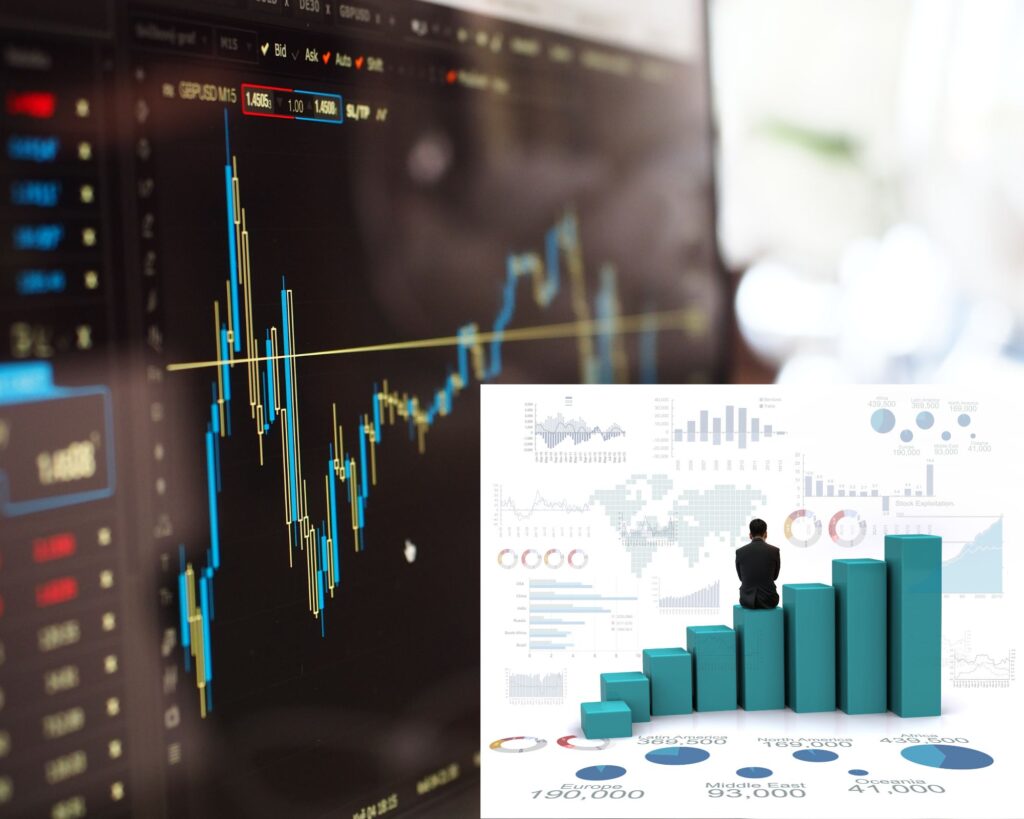
Source: AUN News
This past week, the capacity of sentiment to impact market direction was on the whole show. Even amid cloudy news, investors managed to locate price-supporting beams of sunshine.
The most significant was the interpretation of statements by Federal Reserve Chairman Jerome Powell on Wednesday following the Fed’s 0.75 percentage point increase in interest rates. Mr. Powell, for the first time, ceased providing direction on what the Fed would do next, provided no confidence that a recession could be avoided, and when asked about cuts next year, he pointed to last month’s estimate that rates would increase further in 2023.
All of that was lost on the markets. They overheard him admitting that the economy appears to be moving too slowly (although he questioned the accuracy of GDP data). Bond yields plummeted, and the Nasdaq Composite surged 4%, its most significant one-day rise since the April 2020 pandemic recovery. Investors bet on much faster rate cuts next year than previously anticipated. The markets are opposing the Fed.
Because they’d been so depressed, investors were eager to hunt for good news. This year’s drumbeat of doom pushed down prices, but it also meant that even worse information was required to drive them further. When everything appears bleak, even the slightest break in the clouds seems to be a new day.
The day prior, something similar happened with Big Tech’s quarterly reports.
Alphabet, formerly Google, missed earnings and revenue, causing the stock to slump. Instead, investors concentrated on search engine advertising, a rare bright point in an otherwise dreadful report.
It wasn’t a very bright spot: Google advertising was only 0.9 percent ahead of expectations. However, this was enough to cause the stock to rise 5%. Investors had expected even worse results than Wall Street analysts, so it didn’t take much to please them. Microsoft’s earnings and sales in every segment were disappointing, but investors overlooked the data and focused on the optimistic forecast, which helped elevate the overall market.
SHARE YOUR IDEAS
Do you anticipate that investor sentiment will continue to be positive? What is your reasoning? Participate in the discussion below.
They are ignoring reality, and listening just to what you want to hear sounds insane. But markets work this way because they are interested in what is new, not what they are already prepared for. And when investors are pessimistic, they expect unpleasant things.
According to polls, their attitude has recently improved after reaching an all-time low last month. According to the American Association of Individual Investors, bears continue to outweigh bulls. According to a report, worried fund managers were keeping the most cash since the Sept. 11 attacks in 2001.
The Bank of America, based on its survey earlier this month, was much less ready to take risks than before the 2008 collapse of Lehman Brothers.
The proportionate demand for “put” options to protect against decreasing prices in the options markets is significantly more significant than during the post-pandemic boom, albeit slightly less dramatic than last month. Even Wall Street analysts have rushed to lower earnings projections after spending most of the year increasing them.
The question is whether investors will continue to be optimistic. Because the mood remains depressed, people may continue to find reasons to buy for some time. However, for the price rise to be sustained—the Nasdaq is up 17 percent from its mid-June low; the S& P 500 is up 14 percent—it would take more than sheer enthusiasm. While the Fed is incorrect, investors must be correct about what the Fed will do next year.
As I mentioned on Wednesday, this is a possibility. There is a narrow path that would be ideal for markets, in which sinking global demand and rebuilding supply chains rapidly drop inflation, the Fed pivots to rate cuts in time to prevent a severe recession, and present concerns turn out to be a mid-cycle downturn.
I’m still optimistic that the present technical recession of two-quarters of declining GDP will not worsen, but I’m not convinced that a timely Fed pivot is the most likely conclusion. Without a smooth landing, I am sure the recent sentiment-driven surge will fade and appear to be another dead cat bounce, doomed to slam down to earth.
Write to Team Advocacy Unified Network at info@aunetwork.org.
